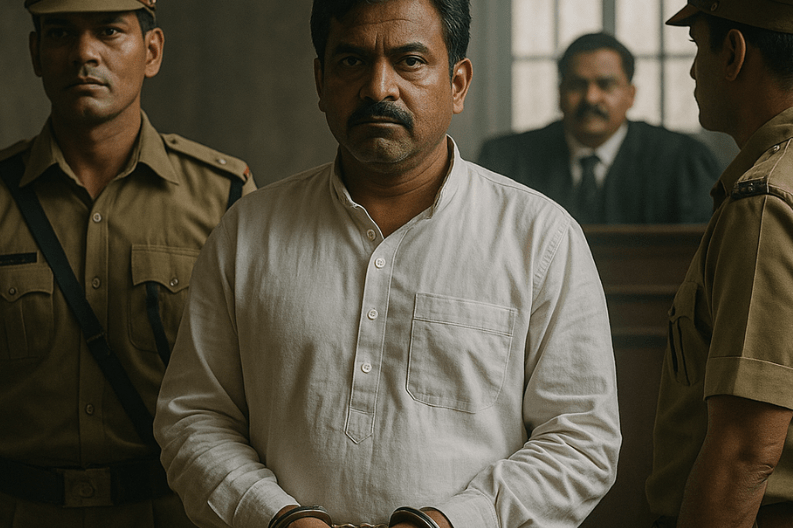The Life imprisonment for BSP leader in 2004 political murder case has reignited debate over political violence in Uttar Pradesh. Former Bahujan Samaj Party (BSP) candidate Manish Pandit and his aide Manoj Kumar Fauji will spend their lives in prison for killing Naresh Singh, a Samajwadi Party (SP) worker. The murder happened 21 years ago, just after the 2004 Assembly election results were announced.
Pandit had contested the election but finished fourth. The winning candidate was Surendra Kumar Munni of the SP. Investigators said Pandit blamed Naresh Singh for his defeat, believing that Singh’s strong support for Munni had turned voters against him. What began as political frustration soon turned into a deadly feud.
On November 14, 2004, Naresh Singh and his nephew Jitendra Singh stood outside their Ramnagar office when Pandit and Fauji arrived with pistols. They shouted at Naresh, accusing him of causing Pandit’s loss, and then fired multiple shots. Naresh collapsed on the spot, and Jitendra suffered bullet injuries but survived. He later identified both attackers in court, describing how locals rushed them to the hospital.
Doctors at Yashoda Hospital tried to save Naresh, but his wounds were too severe. His brother, Vijay Pal Singh, immediately filed a complaint at the Sihani Gate Police Station. Based on eyewitness accounts and forensic evidence, the police soon arrested Pandit and Fauji.
The trial began in May 2005. Prosecutors presented six witnesses, including Jitendra Singh, Vijay Pal Singh, the investigating officer, and the doctor who conducted the post-mortem. The defense called five witnesses and argued that politics motivated the case. They argued that Fauji was on duty at Army headquarters during the attack.
After a detailed review, the judge ruled that Pandit and Fauji were guilty of murder. Each received a life sentence and a ₹35,000 fine. The judge noted that the crime was brutal but not extreme enough for a death sentence. The verdict finally delivered justice to the victim’s family, who had waited two decades for closure.
The defense tried to cast doubt on the evidence, claiming that the complainant, a lawyer, had influenced the police. However, the court dismissed these arguments, citing clear eyewitness testimony and strong forensic proof.
This case highlights how political ambitions can lead to violence in India. The 2004 Uttar Pradesh elections were marked by clashes among party supporters. Experts say that when personal anger mixes with politics, it often turns deadly. Similar cases in other states show that political violence remains a serious threat to democracy.
Analysts emphasize that elections should be fought with ideas, not weapons. Democracy weakens when fear and revenge replace debate and fair competition. Civil groups are now urging the government to strengthen election laws, ensure candidate safety, and take quick action against politically motivated crimes.
The court’s decision sends a strong message: it will not tolerate violence, regardless of the political background of the accused. Justice, even when delayed, reaffirms the rule of law and public trust in the system.
The life imprisonment for BSP leader in 2004 political murder case serves as a warning to all politicians. It reminds them that democracy can survive only when leaders choose peace, respect, and lawful conduct over violence and revenge.



